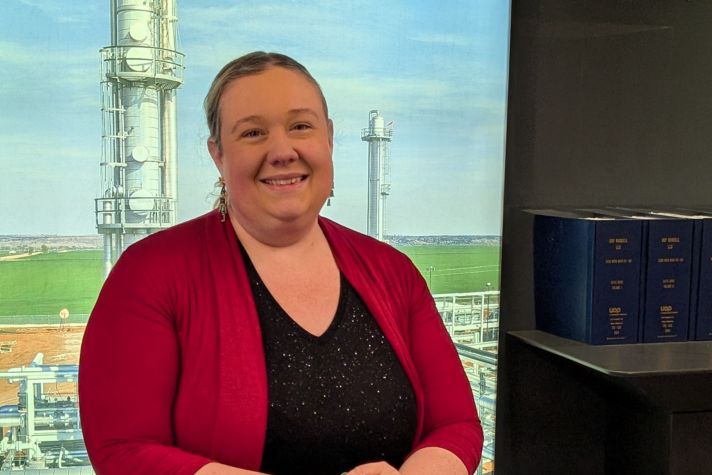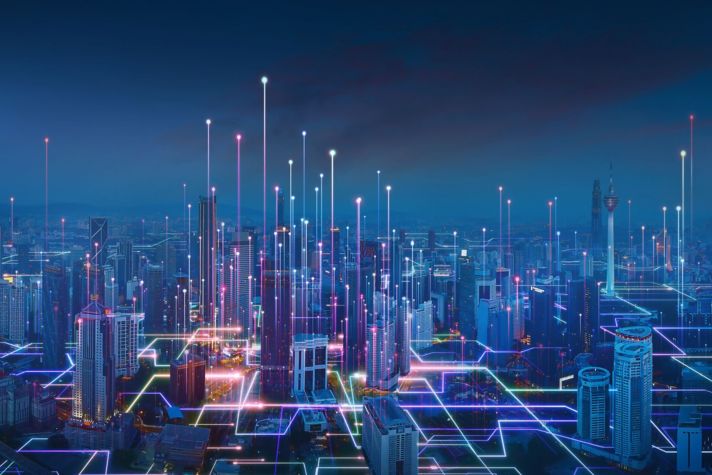-
Global
-
Africa
-
Asia Pacific
-
Europe
-
Latin America
-
Middle East
-
North America
- |
- BUSINESSES
- |
- Contact
- |
-
Global
-
Africa
-
Asia Pacific
-
Europe
-
Latin America
-
Middle East
-
North America
- |
- BUSINESSES
- |
- Contact
- |
You are browsing the product catalog for
You are viewing the overview and resources for
- News
- How AI is Powering Sustainability
How AI is Powering Sustainability
Post-Covid, the world will come back to buildings – made better with help from the latest technology.
On a path to carbon neutrality, companies are harnessing the power of Artificial Intelligence (AI) to help quantify the impact of sustainability initiatives.
For more than 25 years, Leadership in Energy and Environmental Design (LEED) scoring has set the foundation of the physical construction of buildings. “We’ve learned how to build green, but we’re still learning how to live green,” said Gretchen O’Hara, VP AI & Sustainability at Microsoft.
To live green, the answer is AI.
Why Sustainability Initiatives Fail
Sustainability is not just good for the environment, it’s good for business, said Usman Shuja, chief operating officer of Honeywell Connected Enterprise.
“AI has the potential to increase productivity like we have never seen. The Industrial Revolution changed productivity exponentially, but an AI Revolution can make it exponential to the exponential.”
“We tested and addressed this hypothesis head-on, first with occupant experience and energy efficiency for sustainability using artificial intelligence and autonomous controls, but also using analytics to deliver reports to the leaders who can quantify the impact of their investment in sustainability… this is not just the carbon footprint but also the dollar impact.”
AI helps monitor the health and productivity of physical spaces. When you put a dollar value on what that can save, you have accelerated innovation. The overall economic impact of AI is a $26 trillion opportunity.,
How Industries are Meeting Sustainability Goals in a Pandemic
Science-backed evidence suggests that physical spaces affect mental and physical wellbeing. As countries and offices enter various phases of reopening, AI can recommend and reconfigure layouts for safer, more accessible workspaces, remind us of social distancing and detect environmental stressors.
“When COVID started, we thought sustainability might take a backseat, but that has not happened. Occupant experience and healthy buildings have become even more important and sustainability has stayed on top of the agenda," Usman said.
Industries are ready
The pandemic highlighted the necessity for digital transformation.
“It’s our opportunity not only to make AI accessible for everybody but to ensure that we're responsible as we roll this out into places like healthcare.” Gretchen said. “We are pushing the envelope on how AI is going to help.”
Usman predicts AI will disrupt the entire value chain. Consumer behaviors are changing and one outcome from this rapid acceleration in digital transformation is peer-to-peer energy trading.
“I call it the Uber-ization of energy, and that will have some sustainability impact because it will create competition.”
He also predicts the future for renewables will be powered by an AI update to the energy grid to create a more intelligent system that can accommodate two-way traffic. Companies are making strides to realize their vision of advanced AI and machine learning for autonomous plants that will take fuel efficiency to the next level.
“With AI, we will be able to solve big problems like global warming, transportation challenges, energy and sustainability that could be the most valuable invention of the humankind.”
Watch the full Honeywell Tech Forum talk: Usman Shuja in conversation with Gretchen O’Hara.
Copyright © 2025 Honeywell International Inc.




